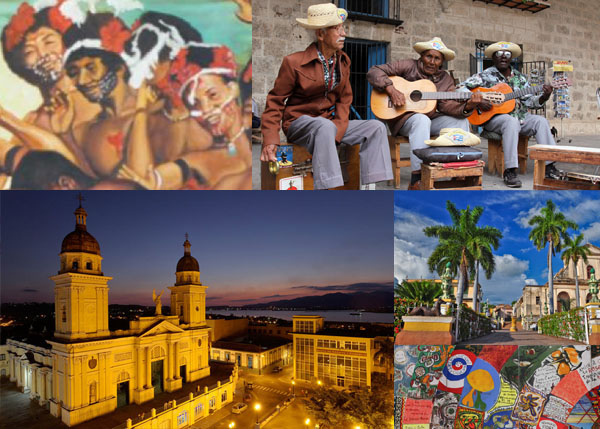9.16 Caibarién Municipal Concert Band.

The Caibarién Municipal Concert Band was founded by maestro José Pilar Montalván Raimundo in 1904. Today, this town in the province of Villa Clara is proud to wake up every Sunday to the sounds of paso dobles and folk music performed by its members. Over the more than 100 years of the Caibarién Municipal Concert Band’s existence, many musicians have trained there. Some went on to join national or international groups, standing out for the quality of their training, while others dedicated their entire lives to the band.
On May 20, 1905, they gave their first concert, and to this day they continue to perform rehearsals, retreats, concerts, special concerts, and educational concerts, in addition to participating in parades, political activities, and funerals.
In 1908, at the request of Pilar Montalván, the Spanish maestro Ernesto Jarque Gómez began directing the band. This musician trained the young musicians and entered them into the National Band Competition, held in Havana from February 4 to March 13, 1911. Due to the youth of the band members, they were forced to compete as a second-class band, given that most of the participants were children. Despite this, they won the bronze trophy “The Coronation of Art,” awarded by the President of the Republic, which became the first major achievement of this nascent band legend.
That same year, the Caibarién Municipal Concert Band also won First Prize in the provincial band competition held on December 8, which also included Remedios and Santa Clara.
In 1915, Armando Raggi Rodríguez took over as leader of the group, but he remained there for a short time due to his deteriorating health. These events were followed by the unfortunate dissolution of the band.
Two years later, thanks to José María Montalván, who devoted himself entirely to teaching new students, the Caibarién Municipal Concert Band reappeared at the inauguration of the Glorieta del Parque in 1917.
Such was the quality of these musicians by 1932 that many of them alternated their roles in the band with rehearsals and performances in the Caibarién Concert Orchestra, founded by maestro Alejandro García Caturla.
Today, every Thursday and Sunday, the traditional retreats are held in the Plaza del Parque La Libertad. This keeps alive the historic tradition dating back to 1872, when the volunteer band offered retreats in the plaza two days a week.
In 2010, the municipal Children’s Band was established, with a new rehearsal space named after Roberto Urbay Carrillo, who dedicated 65 years to teaching and performing in the town.
Throughout this time, this musical institution has been honored to have great Cuban musicians conducting it over the past 100 years. The men who have led the baton in this group are José Pilar Montalván Raimundo who directed from the beginning until 1907, Ernesto Jarque Gómez directed for a period of seven years from 1908 and Armando Raggi Rodríguez was only with them for one year from 1915 to 1916. After that instability in the direction Montalván returned to assume the direction in 1917 and remained until 1945. Maestro Roberto Urbay Carrillo took the reins of this Band in 1945 and handed them over to Julio Martínez Roldán in 1970 who directed for a period of two years and then rejoined in 1978 to direct until 1984. The following year Luis Escobar was in charge of the Municipal Concert Band of Caibarién, who was relieved by the current director of the ship, Maestro Marcos Urbay Serafín.








